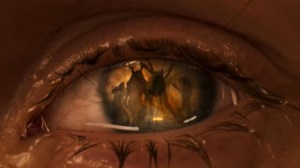When it comes to comic book movies and in particular those featuring superheroes, there is one thing that fans always want and that’s more. It is a rare thing within the genre for moviegoers to be satisfied with just one story. After all, Marvel has given us not just the expansive Marvel Cinematic Universe but numerous smaller franchises within it as individual characters and teams each get their own series of films. On the DC Comics side of things, franchise-building has been a little trickier with some of the shifts in plans for the DCEU. However, now James Gunn‘s The Suicide Squad shows the potential of the comic book movie franchise not just for DC, but for a movie landscape that is already bloated with superheroes simply by leaning into the very elements that make comics work.
Videos by ComicBook.com
A major aspect of what makes The Suicide Squad a strong example of how comic book movies can work as a franchise is the team itself, but more specifically the lineup of characters chosen for the film’s incarnation of the team. In comics, Task Force X is a group comprised of a long roster of villains and anti-heroes; the makeup of any given iteration of the team shifts from story to story. This allows for a team built on characters with a wide range of appeal that aren’t necessarily “prestige” — meaning they aren’t the big names whose stories are often the backbone of larger canonical events. This is an approach Gunn’s film has openly utilized from the jump, bringing to the table some familiar characters who appeared in a previous Task Force X “story” — David Ayer’s 2016 film Suicide Squad — while also adding a variety of new and, in many cases, little-known characters. Even with The Suicide Squad very openly not being a reboot or a sequel, there’s still a sense of place for viewers to jump from and it shows that any filmmaker can come in and make a movie of their own within an already introduced team or world without having to be reliant on their predecessor’s work.
In a similar vein, the utilization of the “deep cut” characters, such as Polka-Dot Man, T.D.K, Javelin, etc. offers an avenue for different kinds of stories. While that makes them potentially expendable in the pursuit of the larger story, they also open up avenues to explore different approaches and tones to the stories being told. We’ve already seen a small taste of this with Peacemaker. While details are few, that character has already received a spinoff series for HBO Max, premiering in 2022. Who is to say what other characters might follow for other directors and writers to take on — providing they don’t die saving the world, of course.
Moving beyond The Suicide Squad showing the value of playing with a large roster of characters, the use of Task Force X generally also presents an opportunity to tell stories that question authority as a part of a superhero or comic book narrative. While Task Force X is nebulously affiliated with the government, that doesn’t make the government the good guys. Examining the idea of whether one can trust authorities, not to mention the ethical questions that come with how the team is conscripted into serving in the first place, offers limitless potential for story ideas within a franchise.
And that leads to another point: The Suicide Squad shows the potential for comic book franchises to break out of the action film mold. Future films moving forward from The Suicide Squad, even if not made by Gunn, could easily branch into different subgenres of film. It wouldn’t be too hard to imagine a thriller or a spy film developing within the general world The Suicide Squad sets up. Additionally, it shows you don’t have to tell superhero stories to make a comic book movie. At the end of the day the members of Task Force X are criminals who likely aren’t going to be simply redeemed in one outing and handed membership to the Justice League. Stories like this open the door for more like them as a balm for the so-called superhero fatigue.
Ultimately, by embracing the best elements of the comic book format — large, rotating rosters of characters who aren’t all “prestige” favorites, opportunities to question authority, and explore stories outside the expected genres or tropes — The Suicide Squad proves the true franchise potential of comic book movies. With the film itself having had the freedom to explore those elements as a “next chapter” of sorts from Ayer’s film, Gunn’s movie shows that this can be done beyond his work as well and invites creators and fans alike to explore the comic book movie genre in a new way.
The Suicide Squad debuts in theaters and on HBO Max beginning Thursday, August 5th.
Want to learn more about James Gunn’s explosive DC Comics movie? Check back on ComicBook CRAM every day leading up to the premiere of The Suicide Squad, and click here for even more articles and videos to find out everything you need to know about the new movie!
If you haven’t signed up for HBO Max yet, you can try it out here. Note: If you purchase one of the awesome, independently chosen products featured here, we may earn a small commission from the retailer. Thank you for your support.








